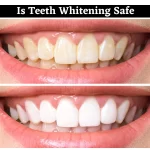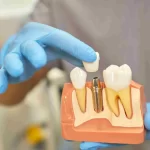Lack of vitamins can make it difficult for the immune system to fight bacteria, which in turn makes your mouth more vulnerable to infections. This can increase the risk of tooth loss and periodontal (gum) disease. Therefore, if you are visiting your dentist with complaints, such as burning or bleeding gums, you may not end up getting a prescription for pills and syrups, but for strawberries and broccoli.
A healthy diet is just as crucial for your oral health as it is your overall health. Different vitamin deficiencies can affect the body differently and seriously. If you are experiencing a sore mouth or bleeding gums, you will definitely have trouble eating well. This will only make the deficiencies worse. The good news is your dentist can indeed diagnose you with the exact vitamin deficiency that you may have, and offer appropriate, safe, and healthy ways to incorporate them back into your system, either by the means of foods, or supplements.
- A sore tongue and red shiny lips indicate that you are in need of more vitamin B2, which you can get through almonds and kale.
- Swollen and/or red tongue tip with smooth dry edges and overall mouth pain are signs indicating that your body needs more vitamin B3. Snack more on avocados, shrimp, liver, and lean ground beef.
- A burning and sore mouth or a smooth tongue may mean a lack of vitamin B6. Add this vitamin to your diet by consuming more bananas, broccoli, spinach, watermelon, acorn squash, chicken breast and white rice.
- Bad breath, dry mouth, red tongue and loss of taste are symptoms that you need more vitamin B12, which can be added by eating fish, eggs, milk and shellfish.
So, if you are experiencing any of these symptoms, contact your dentist immediately.

















